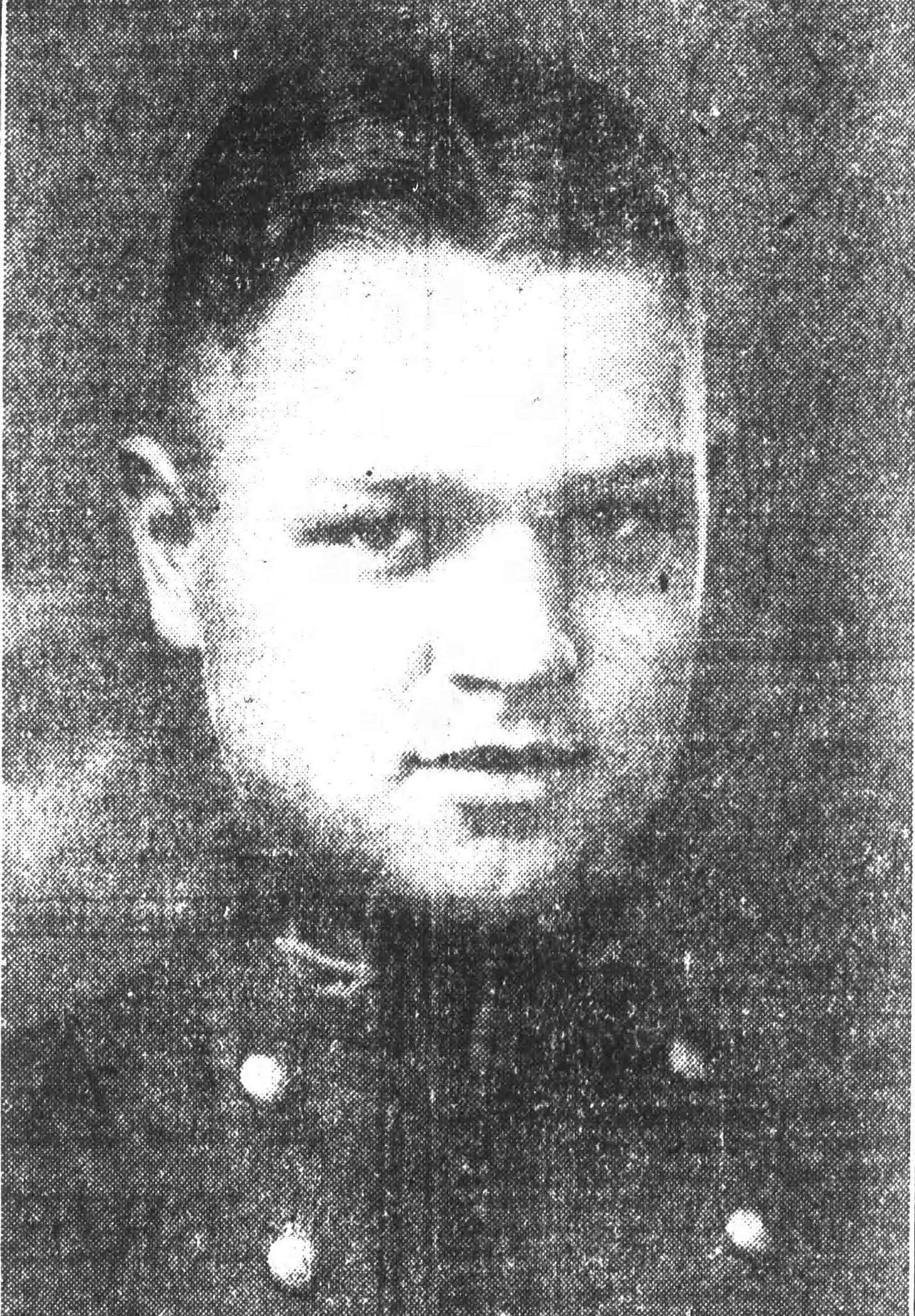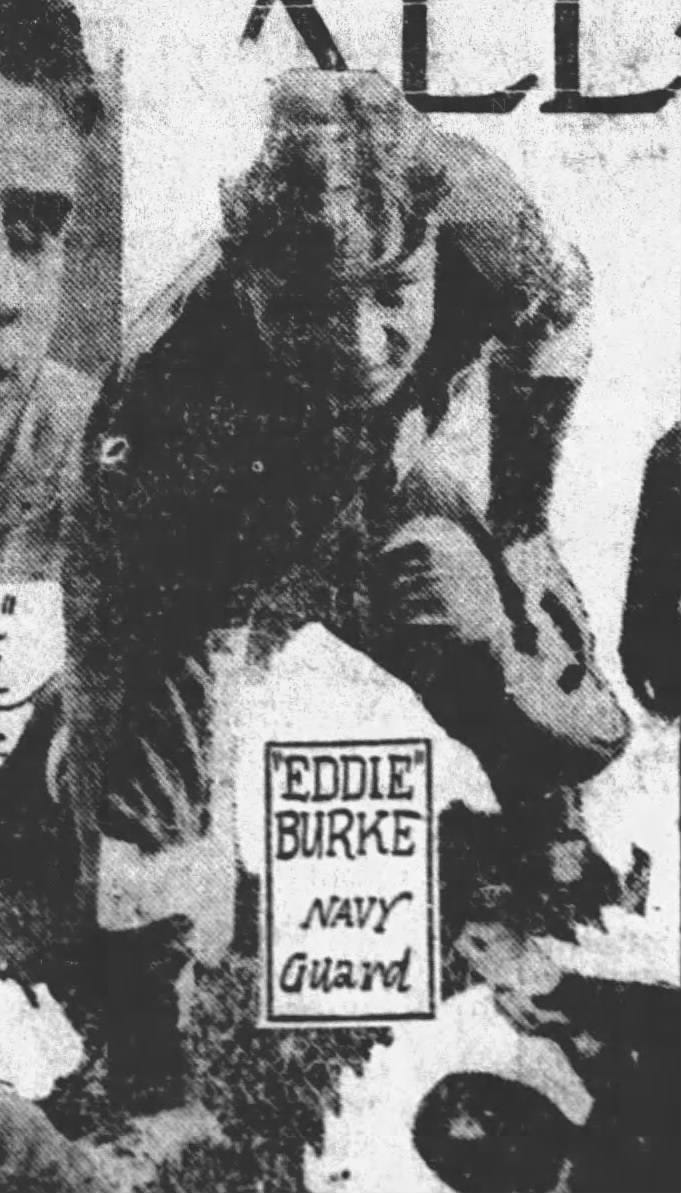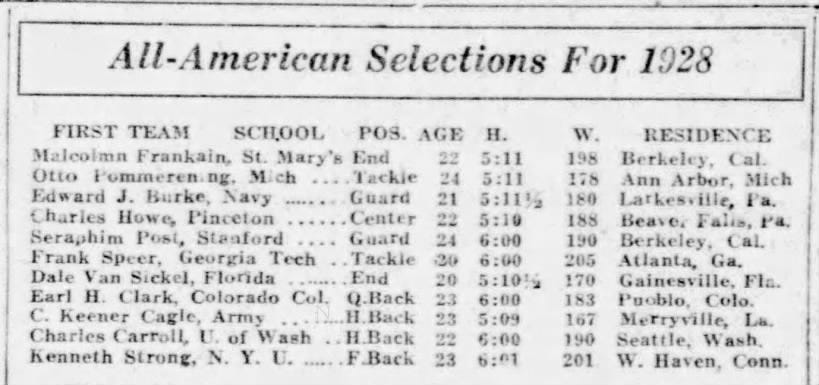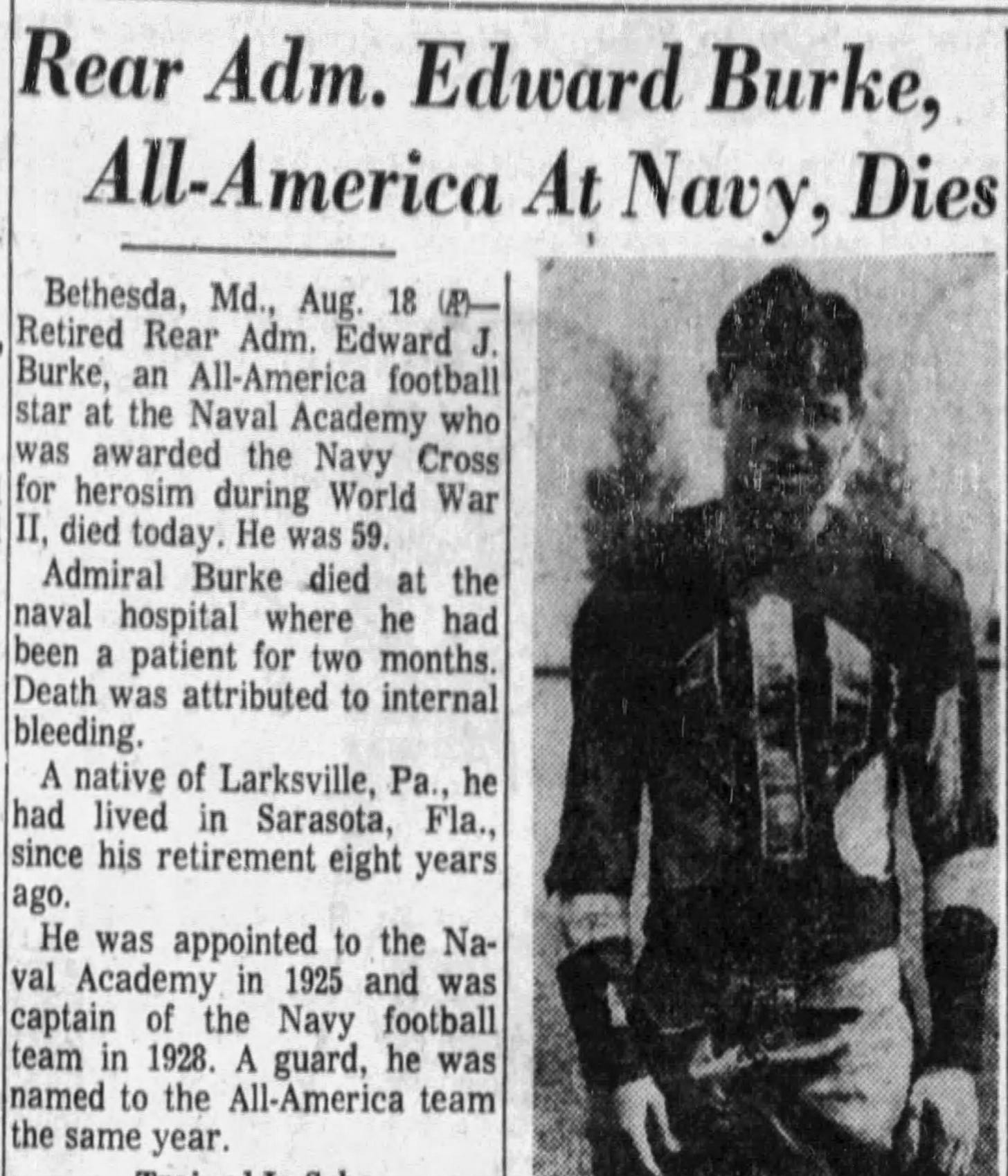Eddie Burke: Larksville native was football, war hero with Navy
Initially cut from the Navy plebe team, Burke defied the odds and achieved numerous honors.
Eddie Burke, of Larksville, Luzerne County, had reportedly never played high school football — and it showed.
During his freshman year at the Naval Academy, Burke couldn’t make it even on the plebe team. He was cut and Navy coach Bill Ingram later called Burke’s tryout a “total flop.”
“However, he had ambitions to be a football player and went out for his class team to learn a little football,” Ingram recalled. “Then in the fall of 1926, he came to me and asked for a chance on the varsity squad.”
Burke got the chance and took advantage of it. He became a team captain, first-team All-American and one of Ingram’s all-time favorite players before further distinguishing himself as a war hero.
“I just can’t imagine a better guard,” Ingram said. “This player has been the most startling development of my football experience, because he came from nowhere.”
Burke was born Nov. 2, 1907, in Larksville and graduated from Larksville High School.
He earned his first crack at varsity college football in 1926 as a backup guard. Among the games he played was Navy’s season finale, a 21-21 tie against Army at Soldier Field. Undefeated Navy (9-0-1) claimed a national championship.
The following year, 1927, Burke, who was listed at 6-foot, 180 pounds, again shined against Army and blocked a punt for a safety. However, Army won, 14-9.
Days after the Army defeat capped Burke’s junior season, the team elected him captain for 1928.
Navy lost its first three games but straightened things out and had a 4-3-1 record going into its final game, which was against Princeton, whose record was 5-0-2.
Notably, the Army-Navy game was canceled because of a disagreement over player eligibility, so the Princeton game was the season finale.
In the leadup to Princeton, the Associated Press picked up a story that ran nationwide about Burke and his inspirational journey from rejected walk-on to team captain.
Burke and Navy handed Princeton its first defeat of the season, 9-0.
“Eddie Burke, playing his last game for Navy, capped his football career with a great climax,” the Baltimore Sun reported. “Carrying an injury which few knew of throughout the season, he played his greatest game of the year.”
The injury in question was chronic appendicitis. Burke successfully underwent surgery in January 1929.
Burke, who was also the light heavyweight boxing champ of the Naval Academy, earned numerous All-America selections for his performance. The AP selected Burke to its first team, as did Grantland Rice for Collier’s Weekly.
Following his football career, Burke was commissioned an officer.
Burke’s obituary in the Times Leader reported extensively on his military career.
“He was awarded the Legion of Merit for his actions as commander of the USS Plunkett during the invasion of Italy in 1943,” the newspaper said. “When a British hospital ship was bombed and set fire, he maneuvered his vessel alongside, placed a rescue party aboard and removed survivors to safety.
“Burke was awarded the Navy Cross for heroism during operations at Anzio, Italy, in 1944 after the Plunkett suffered a direct bomb hit.
“In 1946-47, he was deputy naval adviser at the Office of Military Government for Germany in Berlin and later was a professor of naval science at Holy Cross, Worcester, Mass.”
“Unsinkable” is a book about the USS Plunkett, written by James Sullivan. Visit the book’s website for more information.
Burke retired in 1959 and was promoted to rear admiral.
Burke died in 1967 of internal bleeding at a naval hospital in Bethesda, Maryland. He was 59.
View the constantly updated list of all the Scranton/Wilkes-Barre region’s major college football All-Americans by clicking this link.







